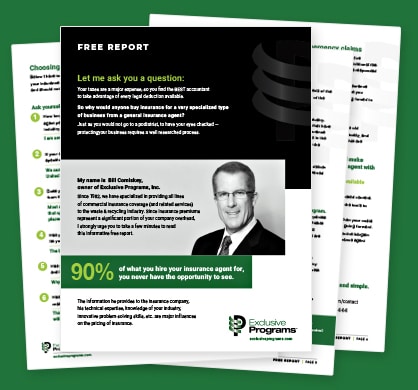Commercial Vehicle Insurance in Florida is an important aspect of running a business that relies on transportation- whether you own a fleet of delivery trucks or a single car used for business purposes. To help ensure you have coverage for your business and commercial vehicles, this blog post discusses the different types of commercial vehicle insurance in Florida, the legal requirements for coverage, and how to find a reliable provider. With this knowledge, businesses can make an informed decision about the best coverage for their needs.
The Importance of Commercial Vehicle Insurance
Having the right commercial vehicle insurance is essential for businesses in Florida. This protects your business from costly legal fees or financial losses due to an accident or other covered occurrence.
Additionally, it ensures that your company meets legal requirements for operating commercially in the state of Florida which allows you to operate without worry or stress, knowing that your company’s vehicles are protected if something were to happen and that you are legally compliant.
Florida Minimum Requirements of Coverage
In the state of Florida, it is necessary to have commercial vehicle insurance to remain legally compliant. All drivers must carry a minimum of $10,000 per person for bodily injury coverage, $20,000 for bodily injury per accident, and $10,000 for property damage. Cargo and shipping vehicles have additional coverage requirements. For example, if you transport household goods, you must have minimum liability insurance of $300,000. General freight requires $750,000 in liability insurance while transporting oil requires a minimum of $1,000,000, and hazardous materials require a minimum of $5,000,000 in liability coverage.
Factors That Affect Rates
When considering commercial vehicle insurance in Florida, several factors affect premiums. These include:
- Number of vehicles and drivers: The more vehicles you have registered with your business, the more expensive your policy will be. This is because each additional vehicle or driver adds to the risk factor and increases your liability exposure. Insurance companies also look at the driving records of each driver and consider their experience level when setting premiums.
- Vehicle usage: The type and frequency of use for each vehicle will also affect your premiums. For example, if you have vehicles that are used for long-distance travel or those that carry hazardous materials, the premiums may be higher than for vehicles used only for short trips or local deliveries.
- Geographic location: Your premiums will also be influenced by the location of your business and its vehicles. Those in rural areas may pay less than those in larger cities or towns, as insurance companies consider them to be at lower risk of theft or vandalism.
- Types of Vehicles or Coverage: Your premiums will also be determined by the type of vehicles and coverage you choose. If you operate large trucks, like a flatbed or box truck, you can expect to pay more than if you only used cars or small cargo vans. Similarly, higher levels of coverage may require higher premiums due to increased liability exposure.
- Deductibles: Increasing or decreasing your deductible can also affect your premiums. The higher the deductible, the lower the premium, but keep in mind that a high deductible could mean more out-of-pocket expenses if you need to make a claim.
How to Choose the Right Coverage for Your Business
Step 1: Determine Your Needs and Wants
Consider how often you use the vehicles, what type of load they carry, and whether they’re transporting passengers or goods. Then decide which type of coverage will best fit your needs.
- Liability Coverage: Liability coverage will help protect your business from the legal and financial costs associated with causing damage to another person or their property while operating a commercial vehicle.
- Collision Coverage: Collision coverage can protect your business’s vehicles if they’re damaged in an accident with another car or object. This kind of coverage can help cover repair costs or replace the damaged vehicle.
- Comprehensive Coverage: Comprehensive coverage can help cover repairs or replacements for your vehicle in cases other than collisions, such as fire, theft, vandalism, or natural disasters.
- Uninsured/Underinsured Motorist Coverage: This type of coverage can protect your vehicles if you’re involved in an accident with another driver who doesn’t have insurance or whose insurance isn’t sufficient to cover the full cost of damages. While this coverage may cost a bit more upfront, it can save you money in the long run by covering costs that would otherwise come out of pocket.
Step 2: Finding the Right Provider
Take the time to research and compare each one to find the best fit for your business
- Research: Conduct research on the providers in your area and make sure that they are properly licensed and insured. Check customer reviews and feedback to ensure they offer the quality of service you need.
- Compare Coverage: Take the time to compare the different options and make sure you’re getting the most coverage for your potential risks and liabilities
- Get Quotes: Request quotes from each provider and compare them side by side to determine the best fit for your budget.
- Ask Questions: Make sure to ask any questions you have about their coverage, services, and pricing before making your decision. Get quotes from multiple providers.
Step 3: Double-Check That You Understand the Policy
Once you’ve decided on the right provider, read through the policy carefully to make sure you understand what’s covered and what’s not.
- Look for discounts that apply to your policy.
- Be sure to inquire about additional coverage options that may be available.
- Ask if there are any extra fees or costs associated with the policy.
- Read all contracts and documents carefully before signing anything.
Before signing on the dotted line, ask any questions you may have about the policy and double-check that all information is accurate. You should also review your policy annually to make sure it is still providing adequate coverage for your business.
Having the right coverage for your business is essential. Commercial vehicle insurance can help protect your business from financial losses associated with accidents and other unexpected events. Taking the time to research providers and compare quotes is an important step toward finding the best policy for your business.
Are your commercial vehicles are properly insured? Make sure your business is legally compliant and protected with the right commercial vehicle insurance coverage. Contact us today for more information about how to get the coverage you need.

